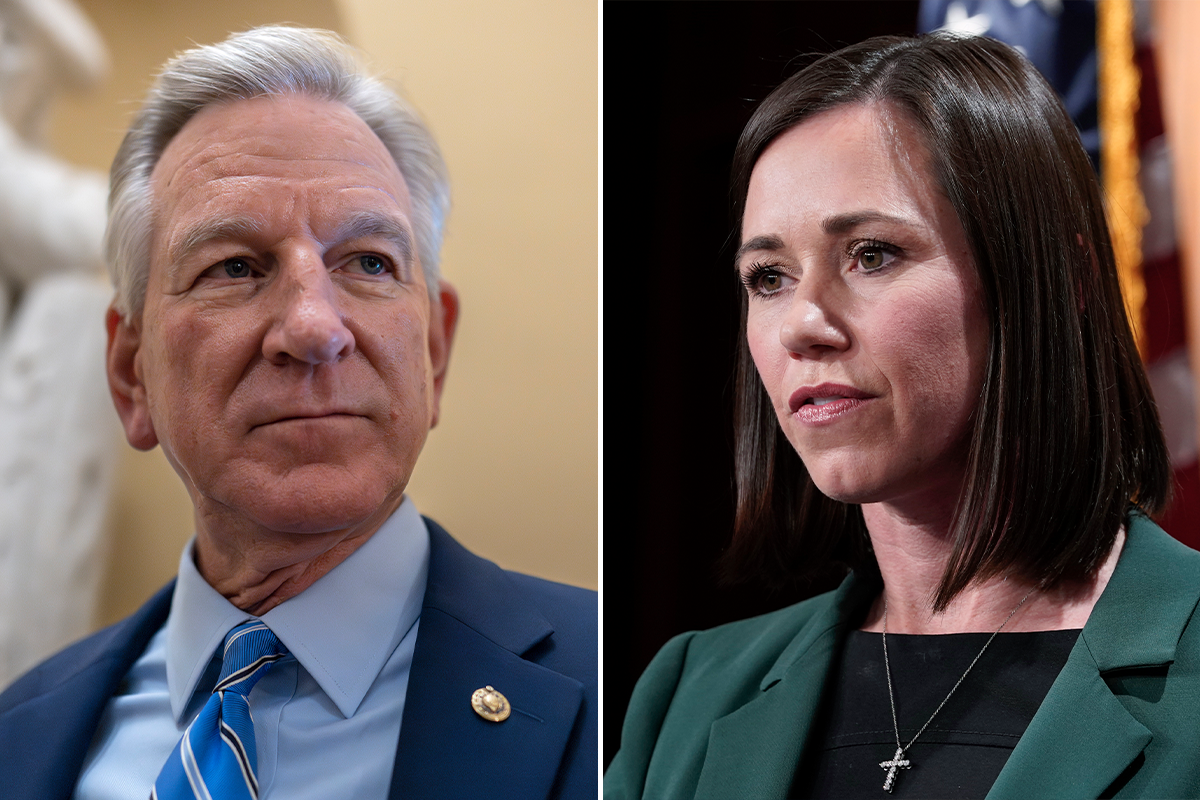U.S. Sens. Tommy Tuberville (R-Auburn) and Katie Britt (R-Montgomery) are demanding answers from the Biden administration over a recent rule to refuse export licenses for civilian firearms and equipment.
The Biden Administration recently halted issuing export licenses for most civilian firearms, firearm optics and ammunition for 90 days.
The Department of Commerce provided no additional information on reasons for the halt but said on a website posting that it will assess the "risk of firearms being diverted to entities or activities that promote regional instability, violate human rights, or fuel criminal activities."
Exports to Ukraine, Israel and a few other allies are exempt from the halting.
In response, Tuberville joined Britt and several other Senators in a letter to Secretary of Commerce Gina Raimondo, demanding answers from the administration for the export ban since answers have been slim to none.
The Senators expressed several concerns, namely that the halt would have negative economic impacts and strengthen illicit arms dealers who would fill the void.
"We recognize the crucial need for firearms for civilian self-defense in Ukraine and Israel, which are exempted from this pause, and note the actions by the Ukrainian and Israeli governments to fulfill those needs. For example, in response to the Hamas attacks, Israeli Prime Minister Benjamin Netanyahu said that part of the war against Hamas involves "encouraging civilians and helping civilians to arm themselves for their self-defence." The Israeli Minister of National Security, Itamar Ben-Gvir, promised to distribute 10,000 free weapons, including 4,000 rifles, to settlers in the West Bank and has relaxed rules for permits to allow 400,000 new people to qualify to carry a firearm.
"Similarly, in response to the Russian invasion of Ukraine, Ukraine's President Volodymyr Zelenskyy announced on February 24, 2022, that the Ukrainian government "will give weapons to anyone who wants to defend the country." By June 2022, Ukraine had distributed "tens of thousands" of firearms to civilians "for national defense."
The letter contained a series of questions for Raimondo, seeking clarification on the department's decision to halt exports.
"As you know, firearms exports to non-government users in countries not covered by the exception constitute a significant percentage of overall U.S. firearm exports," the letter said. "This pause puts at stake U.S. commercial and economic interests, as well as those business interests of firearm exporters whose pending exports are now subject to pause, in addition to U.S. national security and foreign policy interests."
It continued, "As you know, firearms exports to non-government users in countries not covered by the exception constitute a significant percentage of overall U.S. firearm exports. This pause puts at stake U.S. commercial and economic interests, as well as those business interests of firearm exporters whose pending exports are now subject to pause, in addition to U.S. national security and foreign policy interests.
The questions given to Raimondo are as follows:
Please explain the reasoning for this pause and identify the specific U.S. national security and foreign policy interests that are part of this reasoning.
What specific situations has the Department identified where the current export policies affected U.S. national security and foreign policy interests, and contributed to regional instability, violated human rights, or fueled criminal activities?
Did BIS engage with firearm and ammunition industry stakeholders prior to the October 27 announcement to understand the impact this unprecedented decision would have on their industry?
Did BIS engage with advocacy organizations prior to the October 27 announcement to provide advance knowledge of this announcement?
a. If yes, then please provide a list of these organizations.
Has BIS held a meeting with firearm and ammunition industry stakeholders since making the October 27 announcement?
Please provide data on the number of export license applications covered by the Department's October 27 announcement for all countries (disregarding any exceptions) that were pending on October 27, and the number submitted over the previous six months.
Please provide data on export license applications submitted for non-governmental users in Ukraine since the Russian invasion in February 2022 that are of the same type covered by the Department's October 27 announcement.
Please provide data on export license applications submitted for non-governmental users in Israel since Hamas' attacks began in October 2023 that are of the same type covered by the Department's October 27 announcement.
Please provide data on the number of Department employees reviewing export license applications related to the October 27 announcement.
Please provide data on the average number of export license applications related to the October 27 announcement reviewed per day.
Please provide data on the average time to review export license applications related to the October 27 announcement to non-governmental users in Ukraine.
Please provide data on the average time to review export license applications related to the October 27 announcement to non-governmental users in Israel.
Are supplemental funds needed to add more Department employees to review applications so that reviews can be completed in a timely manner? If so, what is the needed level of supplemental funding and how many additional employees should the Department add?
What is your estimate of potential economic loss, measured in dollars, to U.S. firearms industry as a result of this pause?
What is your estimate of potential economic loss, measured in job losses, to U.S. firearms industry as a result of this pause?"
To connect with the author of this story or to comment, email craig.monger@1819news.com.
Don't miss out! Subscribe to our newsletter and get our top stories every weekday morning.










